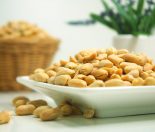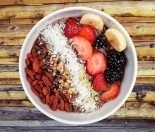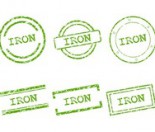Ensuring your child is drinking adequate fluids is very important. So is choosing the right type of fluid! Here is some great information for NZ families on drinking fluids. Encouraging your child to choose healthy drinks over the day will establish good habits for a lifetime.
Young children often don’t recognise thirst very clearly. Establishing regular routines so that fluid is offered at least 6-8 times over the day is important to ensure that your child gets enough fluid.
It doesn’t take long before an inadequate fluid intake can start to affect a child’s behaviour. In the early stages of dehydration, concentration and mood can quickly be affected. If your child is uncharacteristically moody, tearful or grumpy it may pay to stop and check how much fluid they have had over the day.
Adequate fluid intake also helps with bowel function and the prevention of constipation.
How much fluid should they drink?
As a child gets older it can be hard to keep track of how often they visit the toilet, but for younger children keeping a mental note of how often they are passing urine can be a good indication of whether or not they are well hydrated. The urine should be clear or pale and it should not have a strong smell.
It is not easy to set guidelines for the amount of fluid your child should be drinking, therefore offering it regularly is important. Offer more at times of higher need, such as on hot days and during long periods of physical activity. If your child has diarrhoea or a high temperature this will also increase there fluids needs – if you are concerned about fluid intake in this situation consult with your doctor.
To ensure a regular fluid intake, encourage and offer fluids as part of the meal and snack routine. If a child can sip on fluids constantly over the day, including close to a main meal time, you may find they have little appetite for food and that you have a ’fussy eater’ on your hands.
A few words of caution on drinking fluids:
- Do not add juice into your baby’s or toddler’s bottle. This can lead to a high sugar intake which will affect their appetite for wholesome foods at meal times. It can also affect their teeth and develop a sweet preference at a young age. For additional fluids water should be given.
- There are many different fluids to choose from – and some are clearly a better choice than others.
- Some drinks, even if they are not high in sugar are also acidic, so they are not good for your child’s dental health. It is not just sugar that can ruin their teeth; the acidity of the fluid can have a big effect – especially if they are drinking it regularly.
- Remember children should always drink from their own water bottles, to prevent cross infection.
How do some different fluid options stack up?
Fluids to drink freely:
- Water – this is the best fluid to meet hydration needs. This should be the fluid of choice most of the time. Keep it chilled in the fridge if your child likes cold drinks. Some people call it a special name to encourage smaller children to drink it – such as ‘tap juice’. Adding ice cubes to it can also make it fun for children. You can add mint, sliced lemon or orange to flavour it. Water is cheap, easy and readily available.
- Milk is a rich source of calcium – important for growing bones and strong teeth. From the age of 2 years low fat milk, such as light blue or green top milk, can be introduced to your child’s diet.
Fluids to limit – less than 1 glass (250ml) total per day:
- Fruit juices are often promoted as having no added sugar however they are still high in natural sugar. In a 250 ml carton or glass there is 5 ½ teaspoons sugar – don’t forget to take into consideration the fact that a lot of the bottles of fruit juice are bigger than this, so contain even more sugar. Pure fruit juice can contribute to just one of the 5+ a day fruit and vegetables serves. (However, it is still preferable to choose whole fruits, which are more satisfying than juice and contribute to fibre intake.)It is recommended that you water juice down by at least 1 in 4 in young children and up to 1 in 3 in older children.
- Flavoured waters do contain less sugar, but the bottles tend to be large and therefore can contain a lot of sugar. In a 800 ml bottle there is approximately 6 ½ teaspoons of sugar overall. Use of these drinks also encourages the preference for a flavoured drink.
- Flavoured milks will be a source of both calcium and protein, but again it encourages a preference for a sweet drink. The use of plain milk is a better option.
- Diet drinks may be sugar free, but they are still encouraging a sweet tooth and an overall preference for a sweet flavour. Developing a preference for sweet foods as a child can mean that it is harder to break this preference as an adult. Diet soft drinks are also acidic so can damage dental enamel.
Fluids to Avoid – drink less than one glass (250ml) total per week
- Fruit drinks, cordials and powdered drinks are high in sugar and have no nutritional benefits. In one 250 ml serve they have 6 teaspoons of sugar.
- Soft drinks are very high in energy due to their sugar content. In a 600 ml bottle there is 16 teaspoons of sugar. These drinks are also very acidic. Some soft drinks can have a high caffeine intake – see comments on caffeine below. These sweet drinks can often displace other healthy choices from the diet such as milk, or ruin the appetite for good food choices, therefore affecting the overall nutritional balance of your child’s diet.
- Sports drinks are often sipped by children, but these drinks have been especially developed for use by athletes to help meet their fluid and energy needs. They were never designed to be a general sipping fluid. In a 750 ml bottle they contain around 12 teaspoons of sugar – great for the athlete but not so great for the child who just needs to have a drink.
- Energy Drinks such as “V” or “Red Bull” are also popular with children. They are high in sugar, 7 teaspoons in 250ml, and also high in caffeine, so they are not recommended for children.
Caffeine
Some of the drinks mentioned above – soft drinks and energy drinks – can have high caffeine level.
Caffeine can cause problems in children:
- Some children will react to caffeine by showing signs of anxiety or getting the jitters. It can also affect sleep patterns and cause some tummy upsets.
- Caffeine acts as a diuretic, especially if you have a low tolerance to it, therefore it encourages increased urine production- thus contributing to fluid loss.
- Caffeine also increases the amount of calcium lost in the urine, which is not good for healthy bones, or teeth.
- Tea and coffee are also sources of caffeine and should not be given to children.
- Tea contains tannin, a compound which binds with iron, making it harder for our bodies to absorb it. Children often struggle to get enough iron in the diet anyway, so giving tea can increase the risk of iron deficiency. Adolescents who want to drink tea should not drink it with meals because the tannins in the tea will decrease iron absorption.
Useful Articles and Websites:
A report was prepared by the Scientific Committee of the Agencies for Nutrition Action in New Zealand, May 2005:
“Do sugary drinks contribute to obesity in children?”
To read the report visit:
www.ana.org.nz/resources/SugardrinksFinal.pdf






